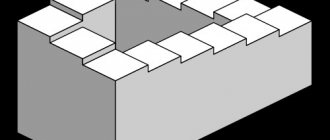Friedrich Salomon Perls, better known as Fritz Perls, was a German physician, psychiatrist and psychoanalyst. He was the father of Gestalt Therapy. He was a controversial and fascinating man who spent his entire life between intellectual circles, theoretical discussions and world travel.
Perls was born in Berlin on July 8, 1893, in the Jewish ghetto. He had two older sisters, Elsa and Greta. His father, Nathan, was a wine salesman who was often away. His mother, Amalia, came from a middle class family. She left him with a deep interest in art that remained with Perls throughout his life.
The goal of therapy is to make sure the patient recognizes when he is experiencing himself, when he is seeing his world, and when he is using his intellect."
Fritz Perls
During the interview, Greta described her brother's childhood as "wild". He was a difficult child, but a good student. He received his secondary education at the Mommsen Gymnasium in Berlin. It was an extremely strict school where anti-Semitism was widespread. Perls was expelled when he was 13 years old. As punishment, his father forced him to work as an apprentice in a pastry shop.
Perls's relationship with his father was always very bad. In his diaries, he defined his father as a hypocritical man with double moral standards. He believed that his father hated his mother and cheated on her with other women. The disgust that Perls felt for his father was so strong that he did not even go to his funeral.
Fritz Perls and his encounter with philosophy and psychoanalysis
Fritz Perls made a personal decision to return to the humanist-oriented school, the Askaničes Gymnasium. It was then that he met Max Reinhardt, a theater director who developed his love for art. This continued until his death.
Important! Later he began to study medicine. Soon after World War I began, Perls volunteered for the Red Cross. But he spoke about this only years later in his biography, “The Agony of Life in the Trenches: The Horror of Life and the Horror of Death.”
In 1920, Fritz Perls received his medical license from the Friedrich Wilhelm University of Berlin. He later specialized in neuropsychiatry. He then met the philosopher Friedlander, whose influence was crucial to Perls's work. In 1923 he decided to go to New York. But he returned disappointed after his license was not approved because he did not speak English. This period led him to begin psychoanalysis with Karen Horney. This changed his life.
DOSSIER
Frederick Salomon Perls
At the age of 20 he began to study medicine,
which indirectly led the young man to become acquainted with psychoanalysis, which, in turn, determined the direction of Perls’s further work (after receiving his Doctor of Medicine degree in 1921, he took up psychiatry).
At the age of 32 he began
a long and unsuccessful journey through the couches of various psychoanalysts, and also met the holistic specialist Kurt Goldstein, which was the first step towards disappointment in psychoanalysis and towards Gestalt psychology.
At 37 he married his unloved wife
a woman with whom they were connected by a common interest and the ability not to interfere with each other.
At 40 with the advent of Hitler
to power, he fled to South Africa, where he acquired a lot of interesting practical experience as a military psychiatrist.
At 58 he published his main work
life (the book “Gestalt Therapy”) and created the New York Institute of Gestalt Therapy in his own apartment.
By the seventh decade,
Having already achieved fame and financial success thanks to the dissemination of his “teachings,” he began to allow himself barbs at the pillars of psychoanalysis in speeches to students at the Esalen Institute in Big Sur.
He died at the age of 76
– March 14, 1970.
Fritz Perls's career change
Perls was fascinated by psychoanalysis. He decided he wanted to become an analyst. But he had to move to Frankfurt to take up a position as an assistant to a psychiatrist named Kurt Goldstein, who was working on the theory of Gestalt psychology. There he met Laura Possner, a student who two years later became his wife. Perls was 36 years old, and Laura was only 24.
A year later he began working as an analyst in Vienna. In 1928 he became a full-time physician in Berlin. Meanwhile, in 1930, Perls conducted psychoanalysis with Eugen Harnick and then with Wilheim Reich. The second man was one of Freud's students. But he moved away from Freud's theories. Many of the theories that Perls developed later were inspired by Reich.
References
- ^ a b c
Bosian, Bernd (2007).
Fritz Perls in Berlin 1893–1933: Expressionism – Psychoanalysis – Judent
. Eine Edition des Gestalt-Instituts Köln / GIK Bildungswerkstatt. Wuppertal: Peter Hammer Verlag. ISBN 9783779500865. OCLC 213389953. - ^ a b c
Perls, Frederick S. (1969).
Entering and exiting the trash can
. Lafayette, CA: Real People Press. ISBN 0911226044. OCLC 55257. - Wysong, Joe; Rosenfeld, Edward (1982). An Oral History of Gestalt Therapy: Interviews with Laura Perls, Isadore Frome, Erving Polster, Miriam Polster
. Highland, New York: Gestalt Journal. ISBN 0939266024. OCLC 9281232. - "Frederick Perls - Chronology of Life." www.gestalt.org
. - "The Founders of Esalen - Esalen." www.esalen.org
. - Clare, Thomas (1995). Working with the body: which massage to choose and how to make the most of it
. William Morrow and Co. pp.40–56. ISBN 9781591202325. - “Dr. Frederick Perls, 76, deceased; invented Gestalt psychotherapy." New York Times
. March 17, 1970 - ^ a b
Masson, Geoffrey M. (1988).
Against Therapy: Emotional Tyranny and the Myth of Psychological Healing
. Common Courage Press. ISBN 1567510221. OCLC 17618782. - Margolick, David (November 3, 1984). "Psychoanalyst Loses Libel Suit Against New York Reporter." New York Times
. Retrieved November 13, 2022. - Blumenthal, Ralph (24 January 1984). "Freud: Secret Documents Reveal Years of Strife." New York Times
. Retrieved November 13, 2022. - ^ a b
Stevens, Barry (1970).
Don't push the river (it flows on its own)
. Lafayette, CA: Real People Press. ISBN 0911226060. OCLC 98912. - Stevens, Barry (1984). Laugh
. Berkeley, CA: Celestial Arts. paragraph 90. ISBN 0890874107. OCLC 14239529. - Wysong, Joe / Rosenfeld, Edward (eds.): An Oral History of Gestalt Therapy
, Highland, New York, 1982, p. 49.
The Birth of Gestalt Therapy
After Hitler came to power, Fritz Perls fled to Holland and could not obtain a work permit. Ernest Jones, after going through some difficult times with his wife and newborn daughter, helped him get a job teaching psychoanalysis in Johannesburg, South Africa. Together with his wife Laura, he founded the South African Psychoanalytic Association. In 1936 he was invited to a conference in Prague, and the ideas he spoke about caused a stir. He found himself in a bad place again and moved away from traditional psychoanalysis.
With the help of his wife, Perls began to formulate his ideas. In 1942, he moved to New York and published his first book: Ego, Hunger and Aggression: Freud's Theory Revisited. Four years later he started "Group 7" with other intellectuals. In 1951, he published what some people see in the Bible about this new approach: Gestalt Therapy: Excitement and Growth of the Human Personality.
The book was born thanks to the help of the poet Paul Goodman, who gave it a literary character. This is a complex book that draws on ideas from Gestalt psychology, psychoanalysis, phenomenology, existentialism, and American pragmatism. Perls later also added some Buddhist concepts after his trip to Japan.
The fate of the theory of Gestalt therapy was difficult. In 1956, Perls divorced Laura, and they both took the theory in different directions. While Laura and Paul Goodman remained completely faithful to the original principles, Perls moved away from this point of view. He brought in Zen principles and even some things from Israeli kibbutzim. At the end of his life he acted more like a guru than a therapist. He died of a heart attack after a long trip.
Business concept illustration of a businessman having a therapy with psychologist
A PLACE UNDER THE SUN
It is believed that Perls's character deteriorated when he became involved with the Esalen Institute in California, a renowned center for humanistic alternative education and spiritual practices. But from the above examples we see that this is far from the case. The legendary psychotherapist was never “white and fluffy.” It’s just that age and free-thinking, so encouraged at the eminent institute, liberated him - and allowed him to break out the main ideas of life, which subsequently resonated with so many people.
“I want to say something about the historical significance of the Esalen Institute. Esalen is an island spiritual colony. Anyone who wants to be heard can hold a seminar at Esalen, Esalen is an opportunity, and it has become a symbol of the humanistic revolution that is happening now."
, – we find in “Gestalt therapy verbatim”.
And in this symbolic place, over and over again he scrupulously and patiently explained to the student audience the principle of “here and now” when working with a client (without delving into childhood traumas, for example), talked about completed and unfinished gestalts (forms, figures, pictures of events and experiences , which a person himself draws against the general background of his life), about self-regulation of the psyche, about neuroses and the mighty power of human nature, which is quite capable of fighting them on its own. “Gestalt theory is at stake.
I finally found a community, a place of existence - Esalen .
Here, in Esalen, he achieved his most important goal - self-discovery. Daniil Khlomov discusses this: “The sixties were the time of new people-legends, inclined to exalt the individual, to rehabilitate the human content of life. One of these legends was Fritz Perls in the last Esalen period of his life. According to legend, he behaved almost indecently. For example, he spoke harsh words to people, noticed things that are not usually noticed, imagined himself to be a great guru, called scientific reasoning “elephant shit” and allowed himself God knows what else.
There are real stories about this period of his life. One day, while working with an extremely boring client, Fritz Perls fell asleep. The visitor was indignant: after all, he paid money. Fritz woke up, gave the money and continued snoring. Or here's another example. One of his university teaching colleagues, having caught Fritz smoking inside the university walls right under the “No Smoking” sign, reprimanded him: “Why are you violating the generally accepted rules!” Fritz shrugged his shoulders at this: “And it wasn’t in my thoughts to go against the rules. I just really want to smoke. Here I am smoking.”
Some people might actually find this behavior provocative. But we should ask ourselves whether this really matters if we know that Fritz Perls came to Esalen in poor physical and emotional condition, but it was here that he came to his senses, wrote the most popular books on Gestalt therapy, and fully opened up. It was a time of his enormous emancipation, which gave the world the real Fritz Perls with his bright and freedom-loving ideas, turning dull psychoanalytic chatter into a real adventure of Gestalt therapy.”
“I was shackled by all the vanity of the city, of a respectable citizen: family, house, servants, making more money than I needed,
– the psychotherapist himself will write later.
– I was shackled by the dichotomy of work and play: the week from Monday to Friday versus the weekend.
I narrowly escaped, thanks to my spirit and rebellion, becoming a calculating corpse, as most of the orthodox psychoanalysts I knew became .
And if we fantasize about whether there was real happiness in Perls’ life, then it, perhaps, overtook him precisely in Esalen, where he could be real. Speak out without hesitation. Not loving what one doesn't love. To love what he loves. After all, in fact, behind all his prickliness and harshness, from childhood there lurked a subtle, sensitive, deep empath who adored drawing at school, completely dissolved in poetry and theater, and was reverent about music.
This boy then grew into a brilliant creative person, albeit with a complex character, without losing his passion for painting (he took lessons and subsequently drew very well), into a lover of tennis and ping-pong, and solo flights at the controls of a personal airplane ( “My greatest pleasure is was to be alone on the plane, turn on the engine and glide down in majestic silence and solitude”), ice skating (“How I loved dancing on ice! Wide gliding movements, grace and balance cannot be compared with anything”
) and the great ocean.
At the end of his life he became an unrivaled charismatic leader and a true legend. And, despite all the attacks and criticism of his theories and behavior, he will definitely remain out of this “garbage bin”, since his contribution to psychological science turned out to be truly invaluable. Indeed, today it is simply impossible to imagine a world without Gestalt therapy.
*Perls's quoted words are from the book "Inside and Out of the Garbage Bin"
.
Gestalt therapy approach
Gestalt therapy can be said to be a trend that focuses more on how patients perceive their reality rather than what they experience. It's not about what happens to a person. It's about how a person sees these things. It emphasizes processes rather than content. This focus is part of humanistic psychology and puts forward three basic principles:
Fritz (Frederick Solomon) Perls (1893–1970) - founder of Gestalt therapy. Since childhood, he was the “black sheep” in the family: he constantly fought with his parents, did not recognize authorities. Received a doctorate with a specialization in psychiatry; adherent of the philosophy of unlocking human potential; studied the connection between hunger and aggression.
We read for you Fritz Perls’s book “Ego, Hunger and Aggression” and made a summary of its main ideas: .
- Mr. Perls, please tell me what it is in the end - “my personal boundaries”? Why do we get so angry when someone violates them?
— Here we must introduce the concept of ego boundaries. The ego boundary is characterized by two phenomena: identification and alienation. I identify myself with my movements: I say that I move my hand. If I become identified with, say, my profession, then this identification can become so strong that if I lose my profession, I will feel that I can no longer exist and that I would better commit suicide. We easily identify with our family. If someone from our family was humiliated, we feel as if we were humiliated. The soldiers of the one hundred and forty-sixth infantry regiment consider themselves better than the soldiers of the one hundred and forty-seventh, and the soldiers of the one hundred and forty-seventh feel more worthy than the soldiers of the one hundred and forty-sixth. So within the ego boundary there is connection, love, cooperation; beyond the ego boundary - suspicion, uncertainty, hostility.
If we recognized our similarities, we would not even suspect the existence of boundaries. But since we readily acknowledge otherness, we are immediately faced with the problem of hostility, rejection—repulsion. “Don’t come near my boundaries,” “Don’t come near my house,” “Don’t come near my family,” “Don’t come near my thoughts.”
There is always polarity: within the boundaries everything is familiar to us, everything is correct; Abroad everything is foreign and wrong. Good inside, bad outside. Our God is the right God. Another God is a foreign God. My political convictions are sacred, they are mine; other political beliefs are bad. Any concept of good and evil, right and wrong is always connected with the border, with which side of the fence I am on.
- And when we fall in love, we still remain on opposite sides of the fence?
- Usually we love not a person. We love a certain quality of that person that either matches or complements our behavior, usually something that completes us. We think we love the whole person, but in fact other aspects of that same person disgust us. Therefore, when we encounter this, when this person behaves in a way that disgusts us, we again do not say: “This behavior of yours is disgusting, although when you behave differently, I really like it.” . We say, “You’re disgusting—get out of my life.”
The function of hatred is to throw someone abroad. In existential psychiatry we use the terms “alienation” and “rejection”. We reject a person, and if his existence poses a threat to us, we want to destroy him. But this is definitely an exile abroad, outside our territory.
- If our territory is so valuable to us, why do we need others? After all, they go here and there every now and then, and then, excuse me, the spoons disappear.
— A living organism is an organism that consists of thousands and thousands of processes and which requires interchange with other systems located outside its boundaries. There is food outside: I want this food; I want to make her mine, just like me. Therefore, I must like the food. If I don’t like her, if she’s not like me, then I won’t touch her, I’ll leave her on the other side of the border.
In order for us to cross the border, something must happen, and this is what we call contact. We touch, we contact, we stretch the border to the thing we need. If we are rigid and cannot move, then the thing remains in its place. In the process of life, we spend energy, and we need to replenish it in order to maintain this mechanism. This process is called metabolism. Both the metabolism of our body’s interchange with the environment and internal metabolism continue continuously, day and night.
Let's imagine that I'm walking through the desert and I'm very hot. I lose, say, eight ounces of fluid. How will I know about this? Firstly, thanks to self-awareness of this phenomenon, that is, thanks to “thirst”. Secondly, suddenly a gestalt appears in the undifferentiated external world, such as a well or a column, that is, something that can compensate for the loss of eight ounces of fluid. Minus eight ounces in my body and plus eight ounces in the outside world cancel each other out.
Once eight ounces enter my system, the water balance is restored again. The situation is over, we are resting, the gestalt is closed. The goal for which we did something, walked many, many miles, is now achieved. Now this situation is closed and a new unfinished situation can take its place, and this means that our life, in essence, is nothing more than an endless string of unfinished situations - incomplete gestalts. As soon as we end one situation, the next one arises. Any imbalance is perceived as a need to restore balance.
- Each of us has a lot of unfinished situations. Is there some principle by which we choose what to finish and what to cross off the list?
— The most urgent need takes precedence and controls all actions. As soon as a critical situation arises, you realize that all other actions must be discarded. If a fire suddenly started here, the fire would be more important than our conversations. If you run away from the fire as quickly as possible, you will suddenly begin to choke, and oxygen will become more important to you than fire. You will stop to take a break because that will be the most important thing to you.
— Let’s say it’s important for many people to achieve certain goals. To do this, we need to change, and we solemnly promise ourselves: now I will definitely do this. And we don’t do it - although it seems like we really dream about those very goals. Why?
“The road to hell is paved with good intentions” has been proven time and time again. Any intention to change leads to the opposite result. You all know this. New Year's resolutions, desperate attempts to be different, attempts to control yourself. Gradually, all this fades away, except for those cases when a person clearly succeeds in everything, and then he is overtaken by a nervous breakdown. Discharge.
If we are at the center of our world, and not at the center of our computer or somewhere else, then we see two poles of each event. We see that light cannot exist without non-light. If everything is homogeneous, awareness disappears. If light is always present, you no longer perceive light. It is necessary that darkness and light alternate. The right does not exist without the left. If I lose my right arm, my center will shift to the left. If there is a superego, then there must be an infraego.
— Please translate this from professional to human.
— Freud only did half the work. He saw the dog above - the superego - but he did not notice the dog below, which is just as individual as the dog above. If we take one step further and study these two clowns, as I call them, who play self-torture on the stage of our fantasy, then these are the characters we will see.
The top dog is usually correct and authoritarian; she knows what's best for us. She's not always right, but she's always right. The dog on top is a dictator who says: “You must” and “You must not.” The dog on top manipulates demands and threatens disasters, for example: “If you don’t do this, then you won’t be loved, you won’t go to heaven, you will die,” and so on.
- Does the dog from below snap?
- The bottom dog uses defensive behavior, apologies, plays crybaby, and the like. The dog below has no power. This is how the bottom dog works: “I’ll do the best I can,” “Look, I’m trying my best; It’s not my fault if I don’t succeed,” “It’s not my fault that I forgot about your birthday,” “I have such good intentions.” You see that the bottom dog is very cunning and usually achieves more than the top dog, because the bottom dog is not as primitive as the top dog.
The top dog and the bottom dog are fighting for power. Like any parents and children, they fight each other for power. The personality is divided into the controller and the controlled. This internal conflict, the struggle between the dog above and the dog below never stops, because the dog above and the dog below are fighting tooth and nail.
- How restless we are inside!
- This is the basis of the famous game of self-torment. We usually take it for granted that the dog on top is right and often it makes completely impossible demands for perfection. If you have the curse of cultivation, then you are completely stuck. An ideal is a stick that will give you the opportunity to beat yourself and mock yourself and others.
Because the ideal is unattainable, you cannot live up to it. The perfectionist does not love his wife. He is in love with his ideal and demands of his wife that she live up to the Procrustean bed of his expectations, and he blames her if she does not live up to it. But he does not reveal what exactly his ideal is. Sometimes some characteristics come up, but the essence of the ideal is that it is unattainable, impossible, it is just a good opportunity to control, to swing a whip. I was talking to my friend one day and I told her, “Please remember, mistakes are not sins,” and it didn’t make her feel any better.
- From what? This is relieving knowledge, or at least it looks like it.
“If mistakes are no longer sins, how can she now blame other people who make mistakes?” If we see the structure of our behavior, which in the case of self-improvement is split between the top dog and the bottom dog, if we listen and see how these two fighting clowns can be reconciled, then we understand that we cannot change ourselves or others at will.
This is the key point: many people devote their lives to realizing a concept of what they should be, instead of realizing themselves. The distinction between self-realization and self-realization is very important. Many people live only for their image. Where some people have personality, most people have emptiness because they are too busy projecting themselves in all directions. This is also the curse of the ideal. You are cursed and cannot be who you are.
— Actually, yes, the very word “should” is somehow depressing. By the way, what does this have to do with?
- Any external control, even internalized external control - “you should” - interferes with the healthy functioning of the body. Only one thing should control: the situation. If you understand the situation you are in and allow it to control your actions, then you learn to cooperate with life.
This is familiar to you from certain situations, such as driving a car. You don't drive according to a program, such as, "I want to drive 65 miles per hour." You drive depending on the situation. At night you drive at one speed, when the street is full of cars - at another speed, and when you are tired, you drive at a third speed. You listen to the situation. The less confident we are, the less in touch we are with ourselves and the world, the more we want to control.
- It seems childish, doesn’t it? How to grow from this?
— To understand what growing up is, we will talk about learning. For me, learning is discovery. I learn things through experience. Some people perceive learning differently: they believe that it is cramming, routine and repetition, a monotonous procedure that turns a person into a machine - until he discovers the meaning of these exercises.
For example, you are learning to play the piano. You start with exercises. And then you succeed, and suddenly the discovery comes: “Aha! I achieved it! That's the problem!" Then you learn how to use this technique.
But there is another kind of learning - pumping knowledge into your computer, that is, you collect knowledge, and knowledge generates more knowledge, and eventually you will want to fly to the moon. This knowledge, this secondary information is useful whenever you lose your senses. As long as you have feelings, as long as you can see and hear and are aware of what is happening, you understand.
If you are studying concepts, if you are seeking information, then you do not understand. You are just explaining. And it is not so easy to understand how explanation differs from understanding, and almost as often it is difficult to understand how the heart differs from the mind and how feelings differ from thinking.
Gestalt therapy has a very specific goal, and this same goal exists in other forms of therapy, and in other forms of opening up life, at least verbally. The goal is to grow, mature.
By the way, adults are very rarely mature people. Adults, in my opinion, are people who play the role of adults, and the more they play this role, the less mature they are.
- What are they like when they are mature?
- For any plant, any animal, ripening and ripeness are identical. You will not find a single animal other than the domesticated animals that humanity has infected. No natural animal or plant lives under conditions that prevent its growth.
Here is my formulation: maturity is the transition from relying on others to relying on oneself. Look at the unborn child. He receives all the necessary support from his mother: oxygen, food, warmth - everything. As soon as he is born, he must take his own breath.
We often encounter a symptom that plays a leading role in Gestalt therapy. We are facing a dead end. A dead end is a critical point in therapy, in growth, a situation where support no longer comes either from outside or from within, and true self-support has not yet appeared.
The child cannot breathe on his own. He no longer receives oxygen through the placenta. It cannot be said that the child is faced with a choice, because there is no time to think about what to do; the child can either die or learn to breathe. Here a little support may come from outside - they will hit him or give him oxygen. "Blue children" are the prototypes of the impasse we encounter in every neurosis.
Then the child begins to grow. They take care of him. After some time, he learns to communicate little by little: first he screams, then he learns to speak, crawl, walk, and so, step by step, he mobilizes more and more opportunities and internal resources. He discovers - or learns - how to use his muscles, senses, mind, and so on.
The goal of therapy is to help the client become independent of others, to allow the client to discover early on that he can do much, much more than he thought. The average person these days, believe it or not, only uses 5 to 15% of their capabilities. A person who has access to 25% is already considered a genius. Thus, from 85 to 95% of our capabilities are lost, unused, and we cannot dispose of them.
- Sounds awful. It's like we're stealing our own treasures.
- The reason is simple - we live in stereotypes. We live in patterns. We play the same roles over and over again. Thus, if you discover how you are hindering your own growth, how you are blocking your own opportunities, then you can remove the obstacle - make life richer, mobilize hidden resources.
We have a very strange tendency, and it is this that blocks our possibilities: we live by re-watching every second. People who rehearse constantly still have problems. And this happens because we are unpredictable.
— Unpredictability causes great anxiety. Why?
“The role of a good citizen requires that he be predictable, because we strive for security, we do not want to take risks, we are afraid to stand on our own two feet, we are afraid to think with our own heads - it’s just a monstrous fear. So what do we do? We adapt. If you are not adjusted, you are either a criminal, a psychopath, or crazy. Either way, you are undesirable and will be cast out of society.
Most therapeutic methods try to adapt the person to society. This may not have been so bad in the past when society was relatively stable, but now that change is happening all the time, it is becoming more and more difficult to adapt to society. In addition, more and more people do not want to adapt to society - they think that it is a vile society or something else. I conclude that the basic personality in our time is the neurotic personality. This is my biased idea because I believe that we live in a deranged society where there is only one choice: either participate in this collective psychosis, or take a chance and recover, or be crucified.
If you are self-centered, then you no longer adapt and everything that happens becomes a performance for you and you assimilate, you understand, you are connected with what happens. In this case, the symptom of anxiety is very important because most social changes cause anxiety. Psychiatrists are very afraid of anxiety. Me not. I believe that anxiety is the tension between now and later.
When you leave the secure now and start worrying about the future, you experience anxiety. And if the future demands action from you, then anxiety is stage fright. And we fill this gap between “now” and “later” - we fill it with insurance, planning, regular work, and so on. In other words, we don't want to see the fertile abyss, the possibility of a future - if we fill this abyss, we will have no future, only monotony.
Of course, anyone who wants to maintain the status quo becomes increasingly panicked and afraid. Usually anxiety is not so deeply existential. It's already combined with the role we want to play, which is stage fright. “Will I get the role?”, “Will they call me a good boy?”, “Will I get applause or rotten eggs?” So it's not an existential choice, it's a choice of inconvenience. But if you understand that this is not a disaster, but only a nuisance, then you will come closer to yourself, you will begin to awaken.
— Does this mean getting closer to yourself?..
- And now we come to the main conflict: every person, every plant, every animal has only one innate goal - to realize itself.
Let's return to the maturation process. The growth process presents two possibilities. Either the child grows and learns to overcome frustration, or he is spoiled. It can be spoiled by parents who answer every question, right or wrong. He may be so spoiled that he gets everything he wants, because “the child should have everything, because dad never had anything,” or because the parents do not know how to frustrate the child - they do not know how to use frustration.
- Wait, but frustration is a painful thing, why use it consciously?
— Without frustration, there is no need, no reason to mobilize resources and understand that you are capable of doing something with yourself. In order not to be frustrated (after all, this is very painful!), the child learns to manipulate the environment. Every time the adult world holds back a child from developing, the child is spoiled because he is not given enough frustration and becomes stuck. So instead of using his potential to grow, he now uses his potential to control adults, to control the world.
Instead of mobilizing his own resources, he becomes dependent. He turns his energy to manipulating the environment to gain support. He controls adults, begins to manipulate them, sees their weak points; requires guiding support. “What should I do?”, “Mom, I don’t know what to do.” He plays the role of a crybaby if he doesn't get what he wants. Or the child begins to flatter other people so that they feel pleased and would give him something in return.
The worst thing is the “good boy”. There is always an evil child inside the “good boy”. On the surface, he agrees and bribes the adults. Or he plays dumb and requires intellectual support, such as asking questions, which are a typical symptom of stupidity.
But what is more widespread is not real stupidity, but playing the fool - he closes his ears, does not hear and does not see. It is equally important to play the helpless. “I can't help myself. Poor me. You have to help me. You are so wise, you have so much strength, I am sure you can help me.”
- But not all answers are obvious - so why not ask about anything now?..
- Most questions are just fiction, a way to make fun of yourself and others. The mind develops when it turns a question into a statement. If you turn the question into a statement, the meaning of the question will be revealed, and the questioner will discover new possibilities. Every time you refuse to answer a question, you help the person discover his own resources. Learning is the discovery that something is possible. To teach means to show a person that something is possible.
Every time you play helpless, you create dependence, you play dependence. In other words, we make ourselves slaves. Especially if it is a dependence on self-esteem. If you need approval, praise, feedback from everyone, then you make everyone your judge.
From the editor
Aggression, like other negative emotions, we are used to suppressing and hiding in every possible way - out of fear that we will be considered an ill-mannered, evil, uncultured person. This is how resilience is formed. Victoria Sando explains why it is dangerous and what to do with it : .
Psychophysiologist Yulia Alekseeva claims that the feeling of stability is always displayed on the face. The habit of always suppressing your emotions leads to the appearance of a “dead mask”. She offers several facial exercises that will help remove tension from the facial muscles: .
Perhaps the biggest name in the Gestalt approach is Sigmund Freud . Read our imaginary interview with this great psychoanalyst: .
Three principles of Gestalt therapy
- Emphasis on here and now. According to Gestalt therapy, people do not perceive the past, present and future as separate realities. These three time periods are part of one unit that exists only in the present. Both the past and the future are only projections of this present. So he tries to work on the here and now. And this is how he tries to help people find a way to solve problems and achieve a more self-fulfilling life.
- Awareness. To achieve a better level of well-being, you must take a closer look at yourself. This is the basis for creating new ways of creating experience in the here and now. This is a path that allows you to refocus your view on things that are not actually happening. And it shows that you need to find a new way to look at your personal experience.
- To take the responsibility. The process of awareness should lead you to the point where you can take responsibility for the consequences of your actions. If you accept your mistakes and develop an understanding of the risks associated with a certain action, you will achieve independence. This is how you can give direction to your existence. The one who has more freedom and meaning.
Gestalt Therapy by Fritz Perls offers a process of intervention to help someone change their view of reality. This should also help them reorient towards a more independent life. They must be able to focus on their own potential. People use it in many different areas: clinical, social and even work settings.
If you find an error, please select a piece of text and press Ctrl+Enter.
Reception
Perls's approach to therapy has been criticized by Geoffrey Masson,[8] a psychoanalyst who has feuded with journalists[9] and with the psychoanalytic community at large over his controversial theories challenging the effectiveness of psychotherapy.[10] Masson said Perls was sexist and physically and emotionally abusive to women in his personal life.[8] Masson quoted Perls from his autobiography: In and Out of the Garbage Pail
, where Perls wrote:[2]
I was once called into a group to calm down a girl who was physically attacking everyone in the group. The group members tried to hold her and calm her down. In vain. Again and again she stood up and fought. When I walked in, she threw herself headfirst into my stomach and nearly knocked me off my feet. I then let her pick it up until it was on the floor. She stood up again. And then for the third time. I lowered her again and, breathless, said: “I’ve beaten more than one bitch in my life.” Then she stood up and hugged me: “Fritz, I love you.” Apparently she finally got what she had been asking for her whole life.
And there are thousands of women like her in the States. Provoke and tease, whine, irritate your husbands and never get spanked by them. You don't have to be a Parisian prostitute to respect your man in this regard. A Polish proverb says: “My husband has lost interest in me, he doesn’t beat me anymore.”
Therapist Barry Stevens, who first met Fritz Perls in 1967, described a different impression of him. She wrote: “... I know that Fritz does not like his arrogance, but at the same time he has such a wonderful humility.” [11]:26 And later she said: “Fritz is now almost always a very warm and gentle old gentleman.” 11]:186
Stevens also described another incident from a group therapy session: “...Fritz Perls asked us all a question and waited for answers...I said nothing. He said, 'Barry?' “I don’t understand anything,” I said. He nodded and walked over to someone else. How nice it is that my emptiness was easily accepted.”[12]
Erving Polster, a psychologist and Gestalt therapist who co-founded the Gestalt Institute of Cleveland in 1953, said of Fritz Perls: “From Fritz I learned that a person can have an incredible range of characteristics. I felt Fritz to be the sharpest and gentlest of all people."[13]










